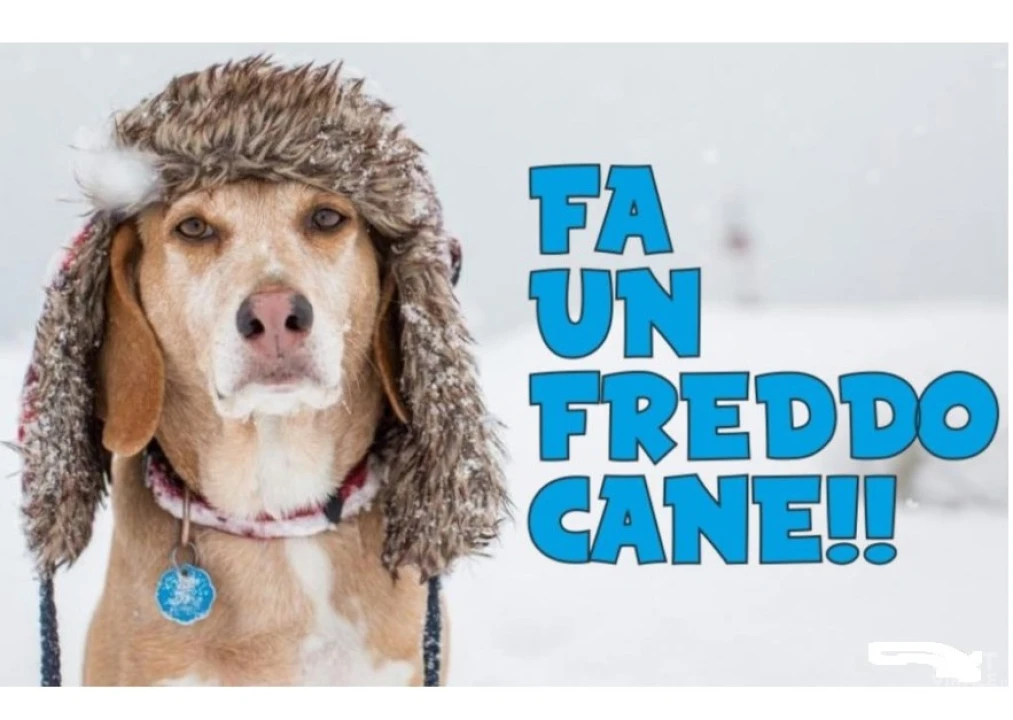Buon anno! Happy New Year! Since nobody wants to start the new year with some heavy-duty grammar, let’s start with some puppy love. What do I mean? I’m talking about dogs, of course! Let’s take a look at some common Italian expressions about dogs.
Let me say something first. Even though we love our beloved pets today, in the past being a dog was not all sunshine and rainbows. So you might notice that some of these expressions would have a complete different meaning if we were referring to today’s doggies. With this said, let’s begin!
The first expression I want to teach you is the one that actually inspired me to write about this topic: fa un freddo cane, which means “it’s freezing.” Yup, temperatures in the North of Italy in the evening and at night are quite low, so it won’t be hard to hear people say it. Cane, meaning “dog,” or da cani, literally meaning “dog-like,” is often used to mean “very bad.” Therefore, un tempo da cani means “very bad weather,” and if you do something da cani is not a compliment at all: hai proprio fatto un lavoro da cani – “you really did an awful job on this.” And, of course, if someone calls you cane (sei un cane! – “You’re a dog!”) they are implying that you are a despicable, wretched being. Again, not a compliment at all. Another expression that uses da cani is che vita da cani! meaning “what a bad life,” but today it is often used sarcastically since dogs’ life is not that bad at all. They often have a warm place to stay in, pretty good food and lots of snuggles. Ah, che vita da cani…
But again, it didn’t used to be that way. If you treat someone like a dog – trattare qualcuno come un cane – you are treating them very badly, as someone unworthy, and if someone looks like a chained-up dog – stare come un cane alla catena – they are not happy at all to be in that place or situation, but they cannot do otherwise. We also say sembrare un cane bastonato, “to look like a beaten dog.” I promise is not as violent or nasty as it sounds, it just means making “sad puppy eyes,” as a result of a disappointment or delusion. Non c’è neanche un cane, “there’s not even a dog,” is used when a place is really empty. And if they are all alone, they are solo come un cane− “alone like a dog.” It is often used about dying, saying morire come un cane or morire solo come un cane, which has a slightly pitiful and sad connotation, since it implies dying alone, forgotten, and abandoned.
But then we have many sayings involving dogs as well: Can che abbaia non morde, “a dog that barks does not bite” which refers to those people who like to talk a lot, yell and threaten, but in the end they are not dangerous at all. (Can is a form of cane used in poetry and sayings to give more rhythm to the word or sentence.) Menare il can per l’aia, “to lead the dog around the farmyard,” means wasting time, stalling, procrastinating. Non svegliare il can che dorme, “don’t wake up the sleeping dog,” is a piece of advice meaning to avoid putting yourself in danger, and uncomfortable position or get into trouble just because you provoked someone, bothered a touchy person, or simply stuck your nose in delicate matters. You can say that a situation is un cane che si morde la coda, “a dog that bites its tail,” which indicates a situation without a solution, in which when you solve a problem another one arises, a slippery slope or a vicious cycle. And the last one is essere come cane e gatto, “to be like cats and dogs,” which has nothing to do with rain in Italian, but it can be said of two people who cannot get along at all, and all they do when they see each other is argue.
I want to close the article by something I always find interesting: animal sounds, which differ from one language to the other. And do you know how the dog goes in Italian? What? Woof woof? Nah! Bau bau!




